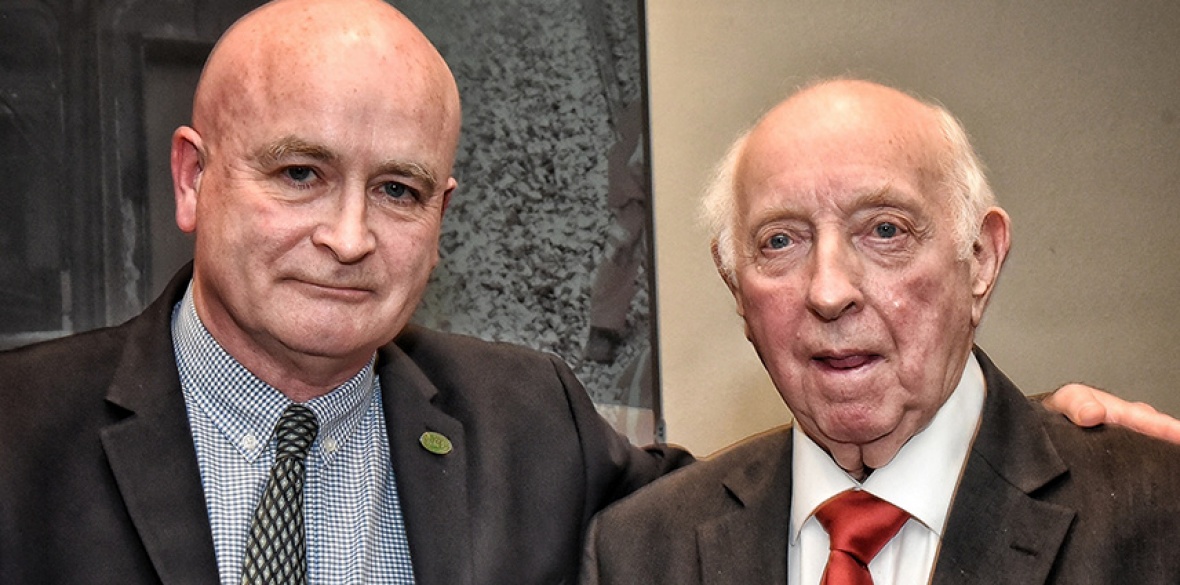This is the last article you can read this month
You can read more article this month
You can read more articles this month
Sorry your limit is up for this month
Reset on:
Please help support the Morning Star by subscribing here
IT IS a real privilege to be invited to speak when your union is taking strike action for a wage increase and no loss of jobs due to new technology.
I applaud the outstanding leadership of RMT national officials whose advocacy in meetings and in the media has been inspirational.
The government has repeatedly said that the RMT claim is a matter between the union and the employers in the rail industry.
On Tuesday June 28, the Transport Secretary Grant Shapps acknowledged to the BBC that he and the Treasury set an overall mandate which dictated how much was available and that he had final sign-off on what was agreed.
If that is not proof that the government is behind what’s taking place, then nothing is.
In effect Shapps confirmed that it is the government and not employers that are dictating policy as was the case in the miners’ strikes of 1972/74 and 1984/85.
In 1972 the government and the Coal Board refused to accept a legitimate pay claim, resulting in Britain’s miners taking national strike action for the first time in 46 years.
In the days that followed, mass picketing with the support of the NUR (National Union of Railwaymen), National Union of Seamen, Aslef and the Transport and General Workers’ Union had an impact.
But unfortunately, leaders of unions with members working in power stations and in the steel industry refused to support us and refused to respect NUM picket lines.
However, one event was pivotal leading to the victory in 1972. That event took place here in Birmingham.
For three days a handful of local NUM pickets had been able to prevent hundreds of scab lorry drivers from taking thousands of tons of coke from a depot in the Saltley area in this city.
Miners from other coalfields responded to a call for help.
And on Saturday February 5 hundreds of miners, including me, arrived in Birmingham. The response by trade unions and the people of Birmingham was amazing.
From the local Labour and Communist Party secretaries to union officials Alan Law of the T&GWU and Alan Harper of the Amalgamated Engineering Union.
But even with that support by Tuesday February 8 it was clear we needed more help.
I had 13 meetings with other unions and shop stewards that evening and I argued as passionately as I could that miners did not need money or messages of support.
“We don’t want your pound notes, we want you to take strike action,” I said.
“Will you go down in history as the working class of Birmingham who stood by while the miners were battered? Or will you become immortal?”
February 10 1972 remains a lasting symbol of what workers united can achieve.
On that morning 30,000 Birmingham women and men came out on strike and 20,000 of them marched to join the miners on the picket line at Saltley Gate.
That day they marched into history and the government was shaken to its core.
Today 50 years later, they remain terrified of what the working class of Birmingham showed could be achieved through workers’ united struggle.
Margaret Thatcher wrote in her autobiography: “Mass pickets forced the closure of Saltley coke depot by sheer weight of numbers. It was a frightening demonstration.”
The battle of Saltley Gate marked the beginning of a year of historic trade union struggle.
In July 1972, there was the London dockers’ strike and the incarceration of the Pentonville Five whose release from jail was forced by massive action.
In October that year, Ucatt building workers were involved in an action against exploitation in the construction industry, organised by men like Des Warren and Ricky Tomlinson.
What a year it was.
The events of 1972 demonstrated how powerful our movement can be.
Today it is the RMT who need the support of other unions who should be taking supportive or secondary action.
It is not for me to advise any union on what it should do. The RMT leadership has conducted an outstanding campaign and you have the right to ask other unions to take supportive collective action, against employers and government who are taking collective action against you in the RMT!
It would not surprise me if the government started to use legislation to stop the RMT strike or to bring action against the union leadership as was the case with the NUM in 1984/85.
Unions should not be intimidated by any threat of sequestration or receivership.
I am appalled tonight that the leader of the Labour Party refuses to support the RMT and its members.
I am sick and tired of listening to politicians who support the right to strike in eastern European countries but oppose and threaten British workers who legally have the right to strike without interference from the government.
Our movement has historically defied unfair laws. The trade union movement won the right to exist not because of benevolent politicians but through strike action and struggle.
In my view it is time to emulate the great trade union leaders such as Jim Larkin, James Connolly and AJ Cook who inspired their members to fight and led from the front, demonstrating they would accept any punishment on behalf of their members.
I have been an active trade unionist and socialist all my life. And until the day I die, I will remain committed not only to the trade union movement but to the vision of a socialist society.
I have utter pride in those who have built our movement and I say to you tonight, on the brink of your struggle, I applaud your actions and am proud to stand full square behind the railway workers in Britain.









